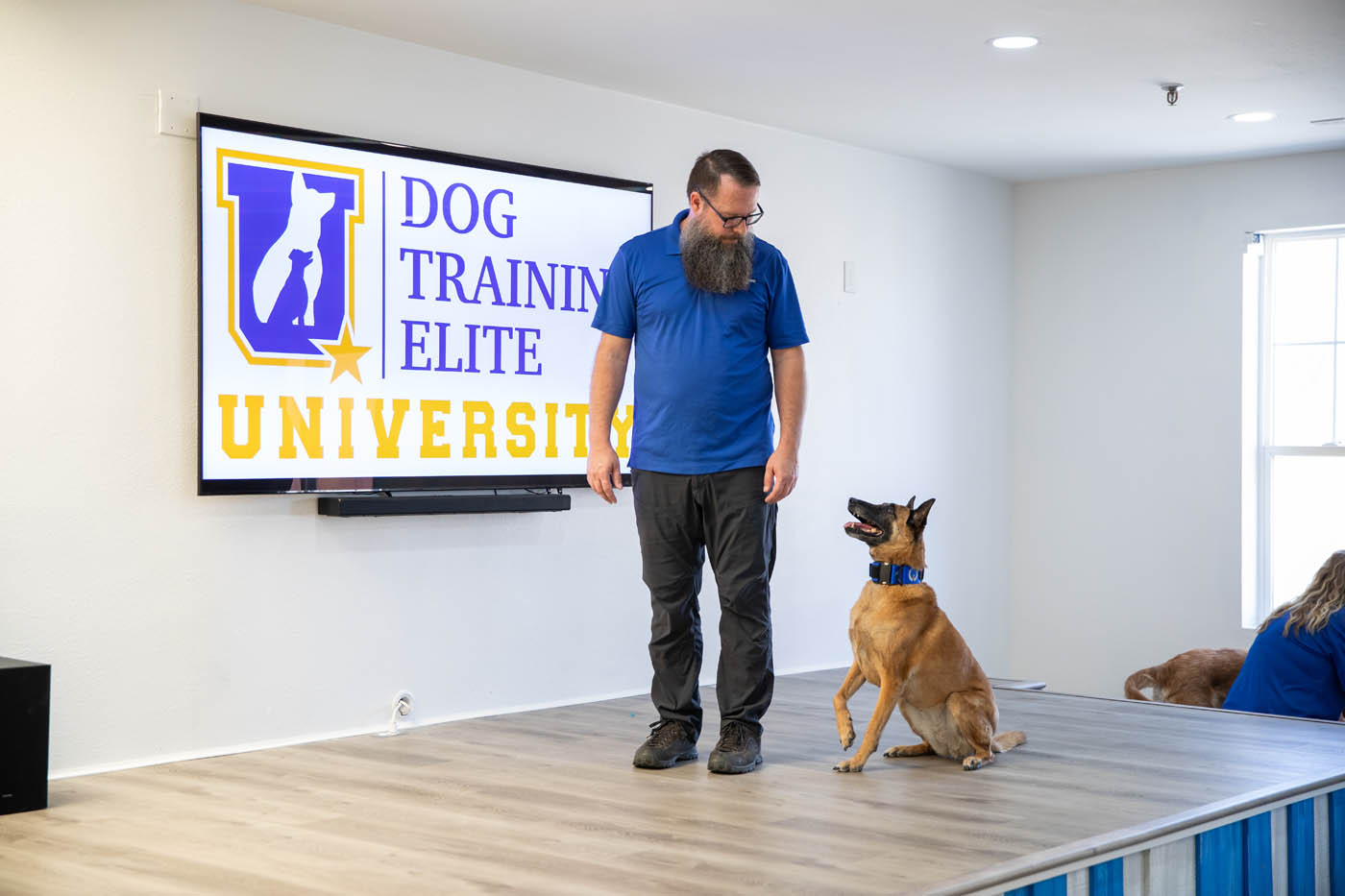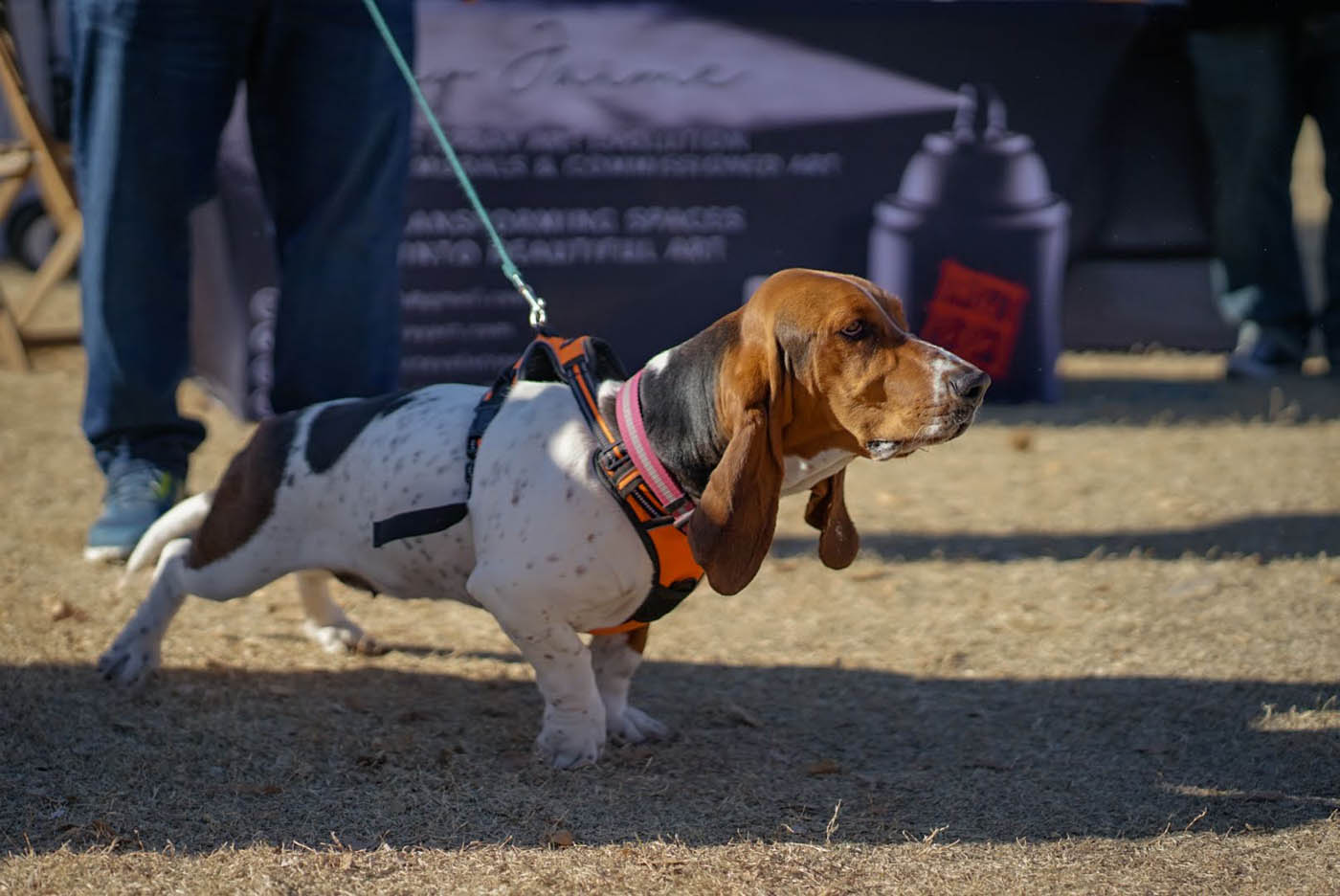Elevate Your Abilities with Local Dog Training Charlotte Programs
Elevate Your Abilities with Local Dog Training Charlotte Programs
Blog Article
Unlock Your Canine's Potential: Proven Canine Training Methods for Success
Efficient pet training is a nuanced procedure that hinges on understanding canine behavior and employing clinically backed methods. By including positive support, developing clear commands, and prioritizing socializing, canine proprietors can cultivate an efficient connection with their pet dogs.
Understanding Pet Behavior
Understanding canine habits is crucial for efficient training and fostering a positive partnership between dogs and their proprietors. An extensive grasp of canine body movement, vocalizations, and social communications is essential for recognizing their feelings and requirements. Dogs interact mostly with non-verbal cues; as an example, a wagging tail might show enjoyment, while pinned ears can signify anxiety or submission.

Moreover, environmental elements play a considerable role in forming a canine's actions. Changes in routine, brand-new surroundings, or the existence of strange individuals can bring about tension or anxiousness in canines. Acknowledging these triggers enables owners to minimize adverse responses and develop suitable training strategies.
Eventually, a deep understanding of canine habits lays the structure for effective training methods, enhancing both habits and the general bond in between the pet dog and its owner. dog training charlotte. This expertise is essential for cultivating a well-adjusted, pleased canine companion
Favorable Reinforcement Techniques
Efficient training depends heavily on favorable support techniques, which have been revealed to yield substantial results in forming wanted behaviors in pets. This technique involves awarding a pet dog for displaying specific behaviors, thereby boosting the likelihood that these habits will be repeated. Incentives can take different kinds, including treats, appreciation, toys, or play, depending upon what encourages the specific pet dog.

It is important to gradually phase out incentives as the pet learns the behavior, transitioning to recurring reinforcement. This approach maintains the actions gradually while preventing dependence on constant benefits. By concentrating on favorable reinforcement, instructors can grow a relying on connection with their canines, promoting a participating and healthy and balanced training setting that improves overall obedience and efficiency.
Developing Consistent Commands
An essential aspect of effective dog training is the facility of constant commands. Uniformity in commands is vital for reliable communication in between the dog and the instructor. When commands are consistent, pet dogs discover to link details words with wanted habits, which speeds up the training procedure and improves understanding.
To establish consistent commands, it is vital that all relative use the exact same terms and gestures. For instance, if one person utilizes "sit" while an additional states "take a seat," it can create complication for the pet. Select clear, unique words for commands and make sure everyone included in the dog's training sticks to these options.
Reinforce commands through frequent practice, guaranteeing that the pet receives enough opportunities Get More Info to respond properly. When a pet effectively complies with a command, immediate favorable reinforcement must follow.
Finally, hold your horses. Developing constant commands takes some time and effort. With devotion and quality, you will certainly help your dog establish a strong understanding of expectations, ultimately resulting in a well-behaved companion.
Socialization and Exposure
Mingling a canine is important for cultivating a positive and well-adjusted companion. This procedure entails exposing your dog to a variety of settings, people, and various other pets to develop their social abilities and versatility. Early socializing, preferably in between the ages of three to fourteen weeks, is vital, as it lays the foundation for a dog's future habits.
During socialization, aim to give favorable experiences in different setups, such as parks, hectic roads, and homes with other see post pet dogs. Present your canine to different stimuli, including sounds, views, and scents, making certain that each experience is rewarding. This direct exposure aids reduce concern and anxiousness, leading the way for a much more durable dog.
Engaging in controlled team play sessions with various other pet dogs can also improve social abilities, educating your family pet suitable interactions and from this source limits. Prioritizing socialization will significantly add to your pet's total happiness and behavior throughout their life.
Overcoming Common Educating Obstacles

One more frequent issue is distraction. Dogs might struggle to concentrate in strange or hectic settings. Slowly desensitize your pet dog to interruptions by starting training in a silent setting and slowly introducing even more stimulations as they become skillful (dog training charlotte nc). Positive reinforcement techniques, such as deals with and praise, can keep motivation and focus.
In addition, behavior concerns like jumping or excessive barking can end up being irritating. Address these by educating different behaviors, such as resting steadly when greeting guests. Consistency and patience are crucial; strengthen desired behaviors continually and prevent abuse, which can bring about complication.
Last but not least, acknowledge that each pet dog is unique, and training timelines may vary. Dressmaker your technique to your canine's individual needs, and look for professional guidance if necessary. With willpower and the ideal strategies, overcoming these obstacles can result in a well-trained, delighted canine friend.
Verdict
Finally, unlocking a dog's possible requires an extensive approach that incorporates an understanding of canine habits, the application of positive reinforcement strategies, and the establishment of consistent commands. Early socialization and direct exposure to varied environments further boost a dog's versatility and confidence. By dealing with usual training obstacles with tailored methods and persistence, a participating and harmonious relationship in between pet and handler can be cultivated, inevitably causing a mannerly friend efficient in flourishing in numerous situations.
Efficient pet training is a nuanced procedure that pivots on recognizing canine behavior and utilizing clinically backed techniques.Comprehending canine actions is necessary for reliable training and promoting a positive connection between dogs and their owners.Reliable training counts greatly on positive support techniques, which have actually been shown to yield substantial outcomes in forming preferred behaviors in pets. When commands are uniform, dogs discover to associate certain words with wanted behaviors, which increases the training process and enhances understanding.
In final thought, opening a pet dog's potential necessitates a detailed approach that incorporates an understanding of canine habits, the application of favorable reinforcement methods, and the facility of constant commands.
Report this page